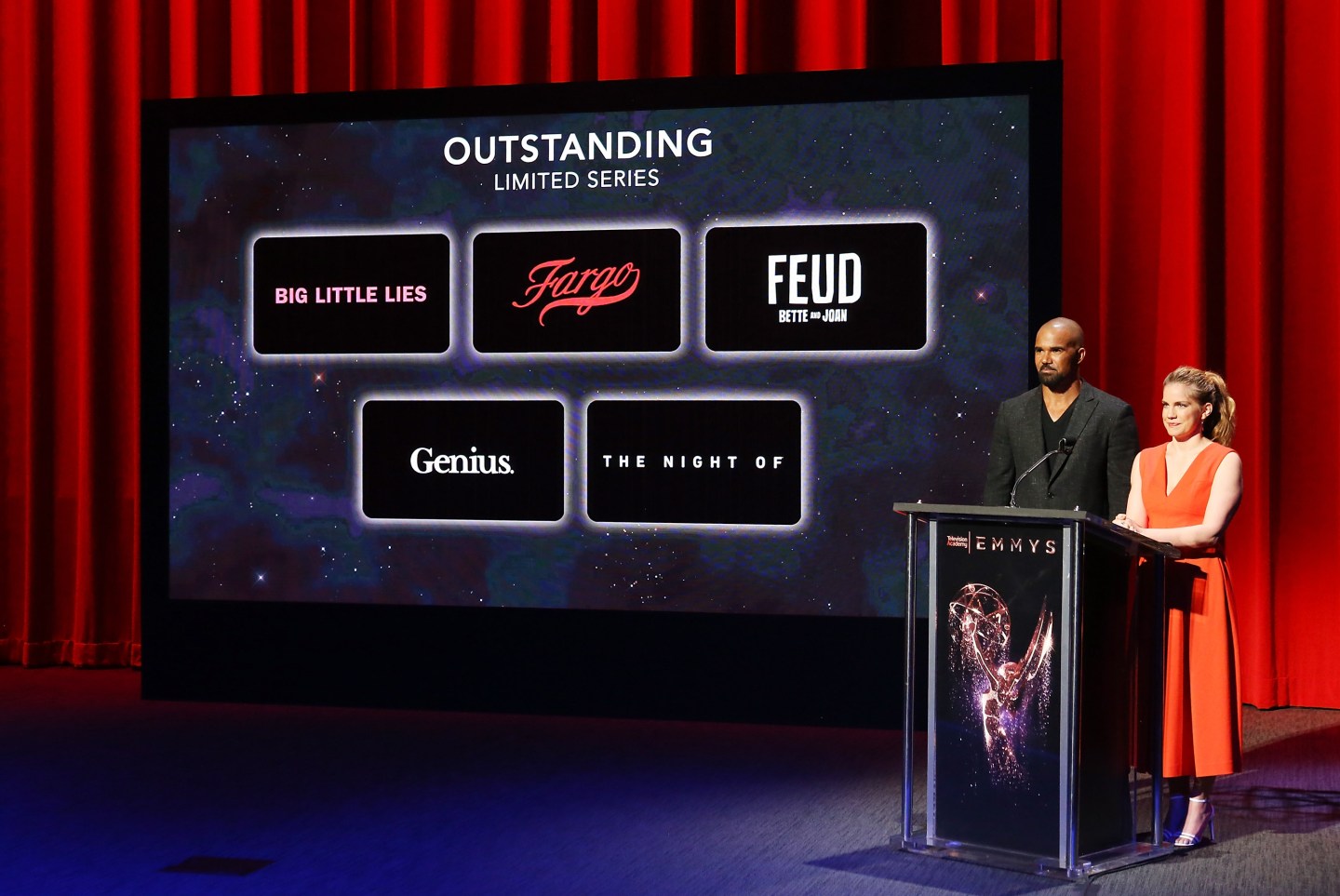Sexism and wage disparity in the entertainment industry: the elephant in the room that has dogged me and my contemporaries our entire creative careers. To mention it seems to whine, to acknowledge it seems to accept an excuse, and to cater to it requires us to shut off more than a few synapses. Women in the creator’s chair: Why is that so hard to support?
Of this year’s Emmy nominations, none of the 14 best comedy or drama series nominees have a solo female creator. The news isn’t all glum, though, as three of the seven nominees for directing a drama are women. But in the limited series category, no women were nominated for writing or directing, and the only female nominees in the comedy- and drama-writing categories had to share credit with men.
While directing features and TV, I spent 15 years as a co-chair of the Directors Guild of America’s Women’s Steering Committee. Along with my fellow women members, we tried to move the employment needle, but no matter what we did, year after year, the numbers of women working as directors never changed. Never mind getting paid less—just getting employed is pretty damn hard. Who would want to hope for a fulfilling career as a female director when so few of us are working—even today?
According to the 2015-2016 Boxed In study by the Center for the Study of Women in Television & Film, over the last decade, the growth of women holding key, behind-the-scenes positions on broadcast television network programs has stalled. It states women accounted for only 27% of all individuals working as creators, directors, writers, producers, executive producers, editors, and directors of photography on broadcast network programs. This is only a 1% rise since 2006-2007.
It’s eye-opening to look at the percentage of women in key behind-the-scenes roles across all programs: 98% of the programs had no women directors of photography, 91% had no women directors, 78% had no women editors, 76% had no women creators, 71% had no women writers, 26% had no women producers and 26% had no women executive producers.
I’m glad I didn’t know the terrible statistics when I started out. Ignorance allowed me to believe and invest in myself as if my ambitions as a filmmaker had no limits. In turn, I honed my entrepreneurial skills as I built an award-winning career, took wage hits like they didn’t matter, sacrificed days of my time on spec projects, ignored the naysayers, and juggled having a family all while bumping against the glass ceiling.
Now working nonstop as a creator (editor, director, writer, producer), it’s important to say that I didn’t do it alone. There were many people, men and women, in positions of power and influence who gave me gender-blind chances. Those same heroes continue to pave the way for the bold and influential who are finally feeling the confidence to vocalize concerns about wage disparity and diversity in the entertainment industry, and all industries, for that matter.
I am thrilled that powerful actresses like Emma Stone and Jennifer Lawrence, who have meaningful financial clout for any project, are taking visible positions paving the way for so many more to join the cause—men included. But wages and money should not eclipse what we are really discussing: Equality is the goal.
Sweden changed its creative culture when the government-backed Swedish Film Institute set a target that half the films supported by the Institute should be made by women, and in 2014, it reached its goal. Telefilm Canada, another government-sponsored film agency, has declared a similar agenda. Can we imagine the day when all of the corporate entertainment giants declare their own goals of gender equality and wage parity? Imagine the good will they would generate for their corporate identities as heroes to the cause. Over half of The Handmaid’s Tale episodes were directed by women, which is pretty groundbreaking, considering the facts.
So, I’ve continually made less money than my male counterparts, taken directing and writing projects that men turn down, bumped my head on the glass ceiling, and make personal sacrifices because I love what I do. Now, I look at my daughter, and I’d like her path to be easier—her opportunities to be without gender bias. What if her wings were not clipped?
I’m sure I can speak for all the working women creators—we feel privileged and lucky, but we have also worked incredibly hard for every chance we’ve had to swing the bat. Now it’s time that the conversation simply stops and we move on to action. The heroes who continue to give untried voices a shot, ignore age, gender, or ethnicity, that’s a way of thinking that needs to be applauded as this conversation fades into history alongside the idea that giving women the vote was ever controversial.
Kari Skogland is a producer, showrunner, director and CEO of Mad Rabbit (a joint venture with Red Arrow Entertainment Group). Her television credits include The Handmaid’s Tale, The Walking Dead, House of Cards, The Americans and the upcoming Three Days of the Condor. Feature credits include Fifty Dead Men Walking.












